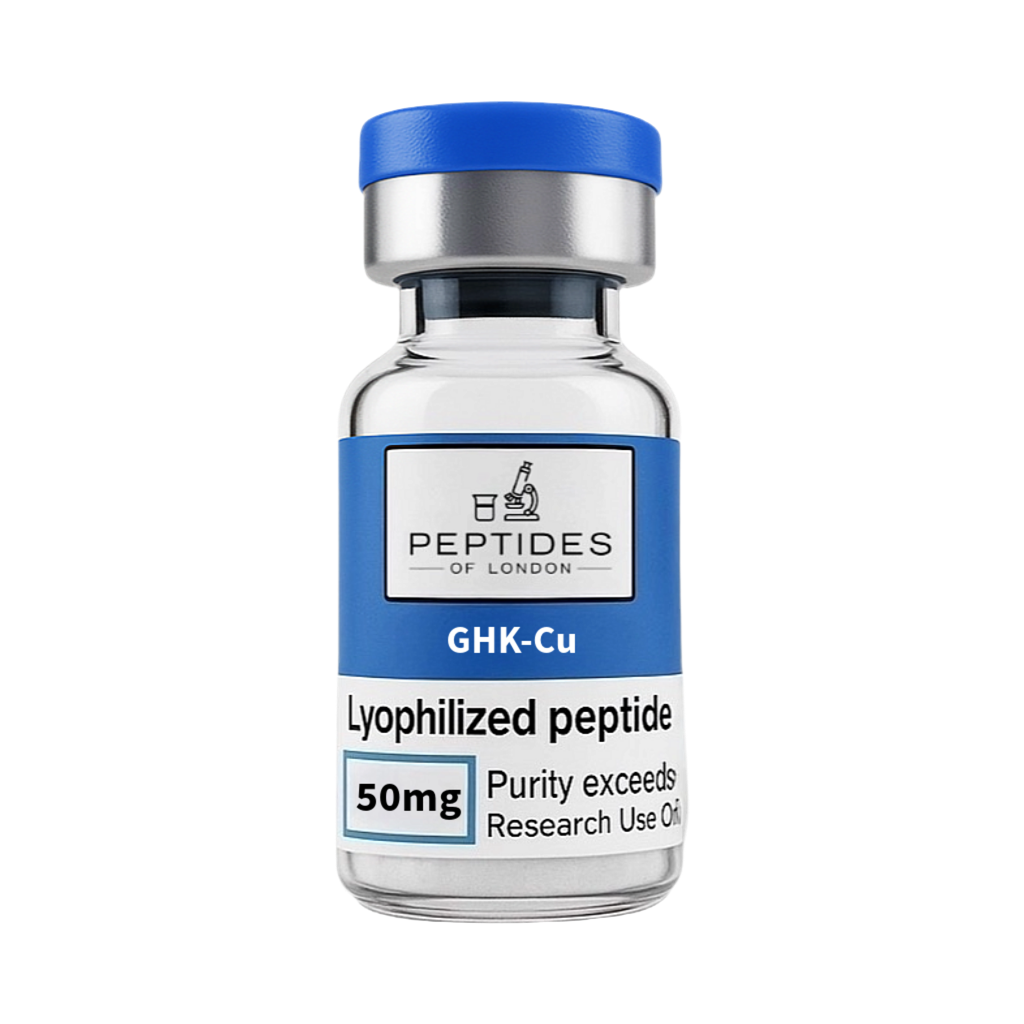Peptides of London
GHK-Cu 50mg
GHK-Cu 50mg
Couldn't load pickup availability
What is GHK-Cu?
GHK-Cu (Glycyl-L-Histidyl-L-Lysine-Copper) is a small peptide consisting of three amino acids and a copper ion. Its discovery dates back to the 1970s, attributed to Dr. Loren Pickart, a biochemist affiliated with the University of California, San Francisco. Initially identified as a component of human plasma, Dr. Pickart later determined that GHK-Cu is present in various tissues and organs throughout the body. He observed a decline in GHK-Cu levels with advancing age, leading to the hypothesis that peptides may influence the aging process. Extensive research has been conducted on GHK-Cu, revealing its potential therapeutic benefits. It exhibits antioxidant, anti-inflammatory, and wound-healing properties, along with the capacity to stimulate collagen synthesis and enhance skin elasticity. Furthermore, GHK-Cu has demonstrated neuroprotective effects, suggesting its potential utility in conditions such as Alzheimer's disease and Parkinson's disease. Additionally, investigations into its anti-cancer properties have indicated that GHK-Cu may inhibit the proliferation of specific cancer cell types and bolster immune cell activity. The exploration of GHK-Cu continues, highlighting its numerous potential therapeutic applications.
Synonyms: Copper peptide
Potential Applications
- Improved skin elasticity & firmness
- Increased hair growth
- Anti-oxidant
- Decreases fine lines and wrinkles
- Anti-inflammatory
- Promotes growth of blood vessels
- Enhanced wound healing
- Stimulates collagen production
This product is ideal for laboratory settings where precision and reliability are imperative.
- CAS Number: 49557-75-7
- Unit Quantity: 1 vial
- Unit Size: 50mg
- Form: Lyophilised Solid
- Product Name: GHK-Cu 50mg
Usage and Storage
Store lyophilised protein at -20°c. Aliquot the product after reconstitution to avoid repeated freezing/thawing cycles. Reconstituted protein can be stored at 4°c for a limited period of time. The lyophilised protein remains stable until expiry date when stored at -20°c.
THIS IS FOR RESEARCH PURPOSES ONLY NOT HUMAN CONSUMPTION
Share


